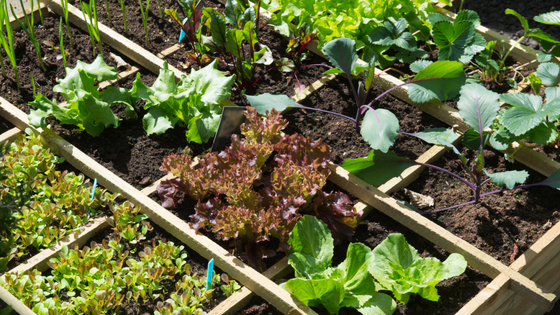
You can use wild plants to get relief from allergies and bites. To make a soothing, stomach tea with roadside weed poultices or to infuse oil from the flower petals to treat rashes, it is possible to infuse oil and the petals together. Infusing the weed with other herbs like calendula can also be useful. Combine the oil with the flowers in a small container and keep it in a dark place for two weeks.
FAQ
Which is the best layout for a vegetable garden?
It all depends on where you live. For easy harvesting, you can plant vegetables together if the area is large. For maximum yield, however, it is best to space your plants if you are in a rural area.
What should you do first when you start a garden?
The first step to starting a garden is to prepare it. This involves adding organic matter, such as composted soil, grass clippings and leaves, straw or other material, to help provide nutrients for the plants. Next, plant the seeds or seedlings in the holes. Then, water well.
Can I grow vegetables indoors?
Yes, it is possible for vegetables to be grown inside during winter months. A greenhouse or grow light will be required. Before purchasing a greenhouse or grow lights, be sure to consult the local laws.
Statistics
- Today, 80 percent of all corn grown in North America is from GMO seed that is planted and sprayed with Roundup. - parkseed.com
- Most tomatoes and peppers will take 6-8 weeks to reach transplant size so plan according to your climate! - ufseeds.com
- It will likely be ready if a seedling has between 3 and 4 true leaves. (gilmour.com)
- 80% of residents spent a lifetime as large-scale farmers (or working on farms) using many chemicals believed to be cancerous today. (acountrygirlslife.com)
External Links
How To
How do I keep weeds out of my vegetable garden?
Weeds are one of the biggest threats to growing healthy vegetables. They compete for space, water, nutrients, sun, and sunlight. These tips can help prevent them taking over your garden.
-
Take all flowers and plant material.
-
Clean up any plant debris at the base
-
Mulch
-
Regular water intake
-
Rotate crops
-
Don't let grass grow for too long
-
Keep soil moist
-
Plant early
-
Harvest often
-
Add compost
-
Avoid chemical pesticides
-
Produce organic vegetables
-
Get heirloom seeds
-
Start small
-
Learn more about companion planting
-
Be patient
-
Enjoy gardening!